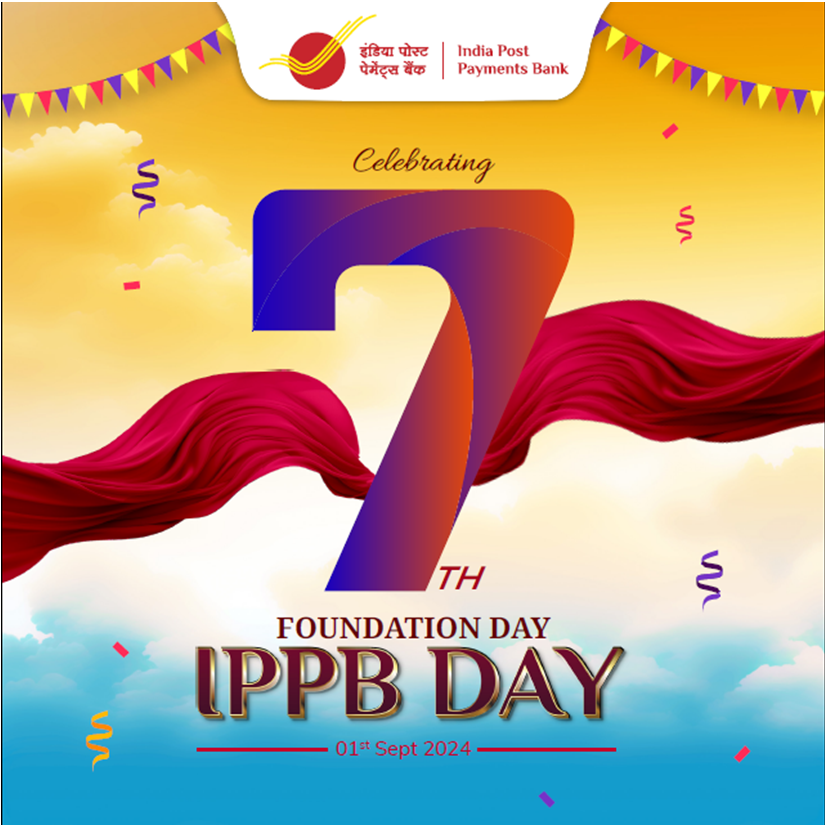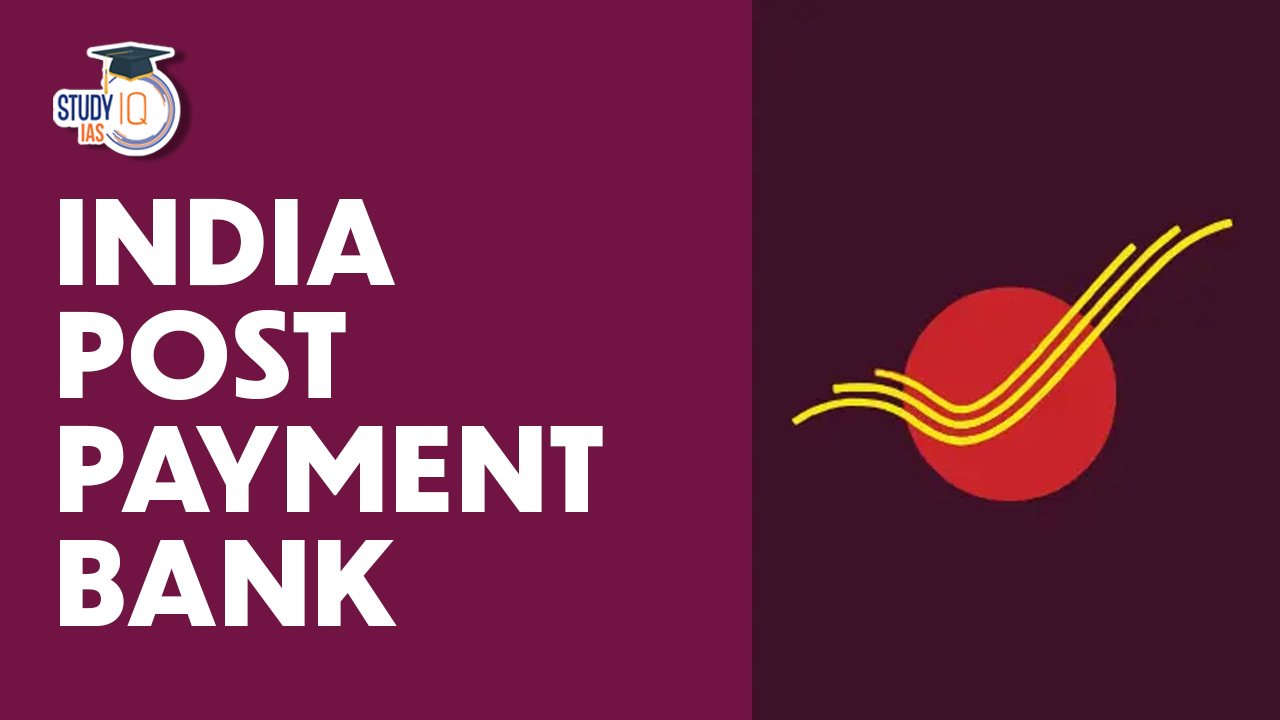Table of Contents
India Post Payments Bank (IPPB) is a unique initiative by the Government of India to promote financial inclusion through digital banking services. Established under the Department of Posts, IPPB leverages the extensive network of post offices nationwide to provide accessible, affordable, and reliable banking services to every Indian citizen, especially in rural and remote areas.
India Post Payment Bank
India Post Payment Bank (IPPB) is a government-owned payment bank in India. It was launched on September 1, 2018, as part of the Indian government’s initiative to provide banking and financial services to the country’s unbanked population.
IPPB operates under the Department of Posts, Ministry of Communications, Government of India. It leverages the vast network of India Post, which is the country’s postal department, to provide last-mile banking services in rural and remote areas. India Post Payment Bank operates through a network of access points, including post offices and postmen across the country.
India Post Payments Bank (IPPB) Celebrates 7th Foundation Day
India Post Payments Bank (IPPB), a significant force in advancing financial inclusion across the nation, celebrates its 7th Foundation Day on 1st September 2024. Launched nationwide in 2018 by Prime Minister Shri Narendra Modi, IPPB has been instrumental in reshaping India’s financial landscape, delivering accessible, affordable, and reliable digital banking services directly to underserved and unbanked families.
Key Achievements of India Post Payments Bank (IPPB)
- Acquired over 9.88 crore customer accounts.
- On-boarded more than 12 lakh merchants.
- Successfully disbursed over ₹45,000 crore in Direct Benefit Transfers (DBT) to beneficiaries under various government schemes.
- Facilitated mobile number updates for Aadhaar cards for over 7.10 crore customers.
- Enabled Digital Life Certificate services for more than 20 lakh pensioners.

Over the past seven years, IPPB has made remarkable progress in closing the financial inclusion gap by utilizing India Post’s vast network of more than 161,000 post offices and 190,000 postal employees. Through its innovative approach, IPPB has enabled millions of people across the country, particularly in rural and remote areas, to access essential banking services. This initiative has significantly contributed to the nation’s socio-economic development by empowering every household with Doorstep Digital Banking Services.
Objectives of India Post Payment Bank (IPPB)
India Post Payment Bank (IPPB) has significant potential due to its current operational strength and its focus on rural areas. With 650 branches/controlling offices spread across every district and over 1,36,078 post offices acting as banking access points, IPPB has a wide-reaching network. Additionally, 22,251 head post offices and sub-post offices are equipped to deliver banking services. The involvement of over 2 lakh postmen and Gramin Dak Sevaks (GDS) allows for doorstep banking services in both urban and rural areas.
Functions of IPPB
The functions of the India Post Payment Bank (IPPB) include:
Basic Savings Account
IPPB allows customers to open basic savings accounts with low minimum balance requirements. These accounts provide a range of banking services, including deposits, withdrawals, and remittances.
Domestic Remittances
Customers can use IPPB to transfer money within India, facilitating domestic remittances. This service is particularly beneficial for customers in rural areas who need to send money to their families or for various purposes.
Direct Benefit Transfers (DBT)
IPPB enables the disbursement of government welfare schemes and subsidies directly to the beneficiary’s accounts. This helps reduce leakages and ensure efficient delivery of benefits.
Bill Payments
Customers can pay utility bills such as electricity, water, telephone, and DTH (Direct-to-Home) services through IPPB. This provides convenience and enables customers to make digital payments.
Mobile Banking
IPPB offers mobile banking services, allowing customers to access their accounts, check balances, make transactions, and avail of various banking services through a mobile application.
Internet Banking
Customers can also access IPPB services through Internet banking, where they can manage their accounts, transfer funds, pay bills, and perform other banking activities online.
ATM Services
IPPB has partnered with various banks to provide ATM services to its customers. Customers can use their IPPB debit cards at these ATMs to withdraw cash, and check balances, and perform other ATM-related transactions.
Third-Party Financial Products
IPPB can offer third-party financial products such as insurance, mutual funds, pension services, and other investment options. This expands the range of financial services available to customers.
Advantages of IPPB
India Post Payment Bank (IPPB) offers several advantages:
Financial Inclusion
One of the key advantages of IPPB is its mission to promote financial inclusion. By leveraging the extensive network of India Post, IPPB reaches rural and remote areas where traditional banks have limited presence. It provides basic banking services to the unbanked and underbanked population, enabling them to access formal financial services.
Extensive Network
IPPB leverages the vast network of India Post, which includes thousands of post offices and postmen across the country. This network provides a wide reach, especially in rural areas, where IPPB services can be accessed conveniently by customers.
Convenience
IPPB offers convenient banking services to customers. With features like mobile banking and Internet banking, customers can access their accounts, make transactions, and avail banking services from the comfort of their homes or on the go. This reduces the need to visit a physical bank branch and provides flexibility.
Digital Payments
IPPB promotes digital payments and reduces reliance on cash transactions. Customers can make bill payments, transfer funds, and conduct other financial transactions digitally, contributing to the government’s vision of a cashless economy.
Government Benefit Disbursement
IPPB facilitates direct benefit transfers (DBT) by enabling the direct disbursement of government welfare schemes and subsidies to beneficiaries’ accounts. This ensures efficient and transparent delivery of benefits, reducing leakages and delays.
Low Minimum Balance Requirement
IPPB offers basic savings accounts with low minimum balance requirements, making it accessible to customers from different income segments. This helps individuals who may not have large sums of money to maintain in their accounts.
Customer Support
IPPB provides customer support services through multiple channels, including helpline numbers and email support. This ensures that customers can seek assistance and resolve their queries or issues related to their accounts and services.
Third-Party Financial Products
IPPB’s collaboration with other financial institutions allows it to offer third-party financial products such as insurance, mutual funds, and pension services. This expands the range of financial options available to customers, providing them with more choices to meet their financial goals.
India Post Payment Bank Challenges
India Post Payment Bank (IPPB) faces certain challenges:
Limited Awareness
Many potential customers, particularly in rural areas, may have limited awareness of IPPB and its services. Educating and creating awareness about the benefits and functionality of IPPB remains a challenge.
Technological Barriers
In some remote areas, a lack of reliable internet connectivity and technological infrastructure can hinder the smooth functioning of digital banking services provided by IPPB. This can limit access to services for customers in those areas.
Customer Adoption
Convincing individuals to shift from traditional banking methods to IPPB can be a challenge. People may have established relationships with existing banks or may be hesitant to trust a relatively new financial institution.
Trust and Security
Building trust and confidence among customers regarding the security of their transactions and personal information is crucial. Addressing concerns related to data privacy, fraud prevention, and cybersecurity is an ongoing challenge.
Last-Mile Connectivity
While India Post has an extensive network, ensuring effective last-mile connectivity, particularly in remote and difficult-to-reach areas, can be challenging. This may impact the accessibility of IPPB services for customers in such locations.
Competition
IPPB operates in a highly competitive banking landscape with established private and public sector banks. Competing with these institutions, which have a strong customer base and established trust, poses a challenge for IPPB.
Human Resources and Training
Maintaining a skilled workforce and providing adequate training to staff, including postmen and postal employees involved in delivering banking services, is essential. Ensuring a high standard of customer service and knowledge about banking operations can be a challenge.
Regulatory Environment
Adhering to stringent banking regulations and compliance requirements can pose challenges for IPPB. Staying updated with regulatory changes and implementing necessary measures can be resource-intensive.
Tips for Safe Banking with India Post Payments Bank
- Beware of Phishing Scams: Always verify messages or emails claiming to be from IPPB. The bank never asks for sensitive information via SMS or email.
- Secure Your Accounts: Regularly update your passwords and use strong, unique combinations.
- Avoid Public Wi-Fi: Conduct banking transactions only over secure, private networks.
- Monitor Account Activity: Regularly check your account statements for unauthorized transactions and report any suspicious activity immediately.
- Use Official Channels: Always use the official IPPB mobile app or website for banking services.
India Post Payment Bank UPSC
Understanding the India Post Payment Bank (IPPB) is important for UPSC (Union Public Service Commission) aspirants as it is a relevant topic that can be part of the UPSC Syllabus. Being aware of the functions, advantages, challenges, and significance of IPPB can help UPSC aspirants in comprehending the broader aspects of financial inclusion, government initiatives, and the role of technology in banking services. Aspirants can deepen their understanding on such topics using resources from UPSC Online Coaching and UPSC Mock Test.


 Growth in Gold Loans and NPAs, Reasons a...
Growth in Gold Loans and NPAs, Reasons a...
 How RBI Responded To Global Trade War Ch...
How RBI Responded To Global Trade War Ch...
 Why Confidence in US Dollar is Falling?
Why Confidence in US Dollar is Falling?





















